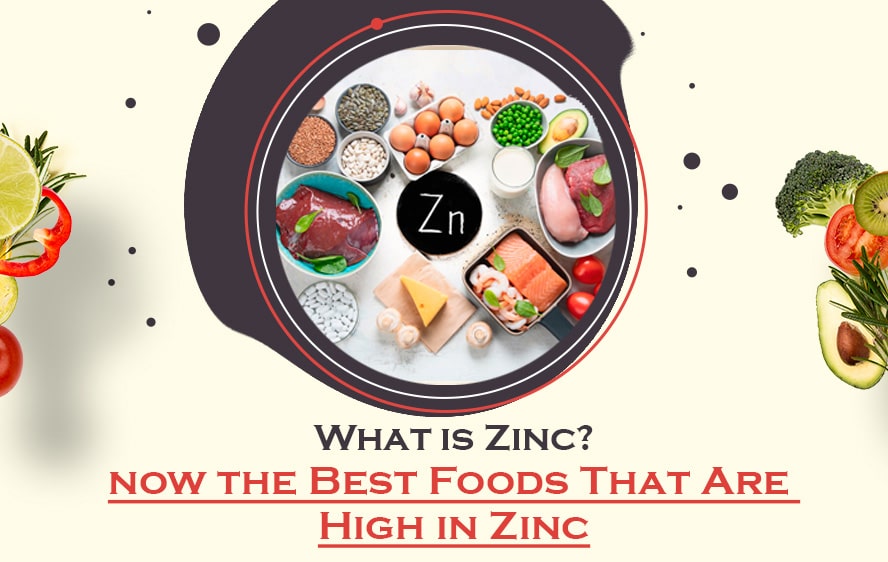What is Zinc?
Zinc is a most crucial nutrient that the body needs for optimal health. This mineral boosts the immune system and reduces diseases by blocking harmful cells and pathogens. Zinc performs an important role in the catalysis of over 100 metabolic and enzymatic activities in the body, and it is fundamental to homeostasis and balance within the system.
Zinc is an essential mineral needed for the proper functioning of over 300 enzymes in the body. It has the builds proteins, immune system strong, creates DNA, supports our sense of smell, and triggers enzymes’ release. Zinc also maintains body cells communicate effectively with each other by acting as a neurotransmitter. The suggested daily intake for zinc is 8 mg for women and 11 mg for adult men. Even though it can find it in a wide variety of foods, it is easier to be zinc deficient than you think.
Health benefits of zinc
As we know the zinc performs a vital role in our body. It is quite essential to know the several health benefits of zinc before talking about the sources of zinc-rich foods.
- Boosts Immunity
- It Helps Cancer Treatment
- Maintain Cardiac Health
- Wound healing: Zinc-rich foods
- Eye health
- Mental Health
- Diarrhea
- Acne
Why is zinc so important?
Zinc aids in the formation of new cells and enzymes throughout the body. It’s vital for maintaining a healthy immune system, processing food, and healing injuries.
Here, it is Zinc Best Foods
Some Vegetables
Fruits and vegetables are not an excellent source of zinc, but some exceptional ones include a moderate amount. To name a few are potatoes, kale, and green beans. Although these vegetables don’t provide a perfect amount of zinc to the body, eating those vegetables has decreased the risk of chronic diseases like heart disease and cancer. Potatoes are also performing sensual health. Fildena 100mg or Super P Force, is the best remedy to improve men’s health diseases.
Cashews
Cashews include nutritional properties like magnesium, iron, selenium, and phosphorus and are rich in zinc. One ounce (about 18 cashews) provides 1.6 mg or 15% of your every day zinc requirements. It’s also an excellent source of phytochemicals, plant-based proteins, healthy fats, and antioxidants.
Wheat germ
Wheat germ is also an outstanding zinc source, with a 100-gram serving providing 17 mg of zinc, equivalent to about 111% of this mineral’s recommended daily allowance. You can make it a part of your diet plan by spraying some toasted wheat germ on your salad.
Fruits
Fruits rarely contain abundant amounts of zinc, but certain fruits are the richest sources of this mineral. Pomegranates fruit top the list with one fresh pomegranate giving 1 mg of zinc. Avocados are also rich in zinc, giving 1.3 mg in one medium fruit. Berries are excellent sources of zinc, too. A cup of blackberries includes about 0.8 mg, while raspberries and loganberries each contain 0.5 mg of zinc. A cup serving of dates requires 0.4 mg of zinc.
Shellfish
Shellfish like oysters, lobster, clams, crab, mussels, shrimp, scallops, etc., are some of the most potent natural zinc sources. It is good to consume seafood once or twice a week; even if we eat contaminated one unknowingly, our healthy body can flush that out.
Legumes
Lentils, chickpeas, and beans are all legumes that include substantial amounts of zinc. Even 100 grams of cooked lentils have around 12% of the daily value of this essential mineral.
According to research in Clinical Diabetes, legumes are an excellent low fat and high-protein food loaded with minerals, vitamins, and lots of dietary fiber. So, it’s time to include these legumes in stews, delicious soups, and salads because sprouting, heating, fermenting, or soaking these plant sources of zinc can raise this mineral’s efficiency.
Nuts
Nuts are one of Mother Nature’s strongest all-around snacks, full of healthful vitamins, fats and minerals (including zinc).
Here are a few instances of nuts rich in zinc:
- Pine nuts 12%,
- Pecans 9%,
- Almonds 6%,
- Walnuts 6%,
- Peanuts 6%,
- And hazelnuts 5%.
Meat
Meat is an outstanding source of zinc where red meat is a source, but it can find extensive quantities in all kinds of several types of meat, consisting of beef and lamb:
- In fact, 100grams of raw minced meat includes 4.8mg of zinc, representing 44% of the standard value.
- This meat provides 176 calories, 20 grams of protein, and 10 grams of fat.
- It is also a significant source of several other essential nutrients such as iron, B vitamins, and creatine.
It should note is that eating large amounts of red meat, mainly processed meats has been correlated with a developed risk of heart disease and some cancers. However, as long as you keep eating processed meat at a minimum and consuming unprocessed red meat as part of a diet high in fruits, vegetables, and fiber, you may not have to worry about it.
Eggs
Eggs have a typical amount of zinc in them. An egg includes 5 percent of zinc, which means two eggs a day will fulfill your zinc’s daily needs. Each egg consists of 77 calories, 6 grams of protein, and 5 grams of healthy fats. I fill it with other minerals and vitamins, including selenium and B vitamins. It helps balance hormone levels and combat stress or anxiety two factors that are crucial to a healthy libido. Fildena 50 and Vigora 100 also help to treat men’s low libido problems.
Seeds
Seeds of flax, pumpkin, sesame include significant zinc amounts that fulfill up to 33% of the daily zinc requirement. These seeds contain healthy minerals, vitamins, and fiber that make your diet full of nutrition. These seeds also help in diminishing harmful cholesterol levels and high blood pressure.




